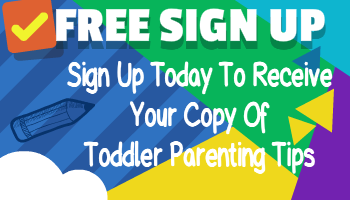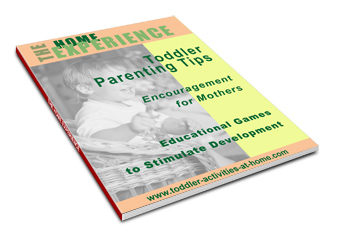Do Your Kids Need Spelling Help?
Learn the Best Ways to Help with Spelling
Let’s face it; the English language is not always user friendly and some kids pick up spelling right away and some just seem to struggle with it. As a parent it’s important to determine whether your child’s struggle is just the normal learning curve for learning spelling or if it goes deeper than that.
Do your children have any of these spelling problems?
- Trouble remembering even the most simple spelling words
- Transposes letters such as b and d
- Feigns being tired or sick so they don’t have to read or do lessons
- Skips many words when reading
- Frequently guesses at words
- Writes words the way they sound, disregarding spelling rules (thru, tuch, brak)
Is it even really important for kids to know how to spell any more?
Some argue that spelling is no longer a required skill for children since there is technology available that does spell checking for them. Why do kids need to learn to spell if they can just push a button on a computer or smart phone?
- Spell checkers are not always available and they aren’t 100% accurate. For example, a spell checker may not correct the following sentence since too is a word and it is spelled correctly:
I have too sisters and one brother.
- Fair or not, we often get judged by our ability to write and spell. People with misspellings on job applicants are a prime example.
- Good spellers make good readers; and being a good reader can open doors all throughout school and beyond.
Spelling Help - Spotlight
What is it? All About Spelling
Why We Love it:
- The program is laid out in easy step by step instructions
- Kids get spelling help at their your own pace
- Teaches spelling rules that give kids a foundation - not just rote memorization
- You don't need a separate phonics program
- It teaches just the right amount of sight words
- It's child and parent friendly (parents love the easy to teach program)
- They provide a one year guarantee (who does that?)
Who is this for?
- Kids with all different learning styles (it's multi-sensory)
- All age groups - from preschool to high school
- Struggling spellers and children with dyslexia
- All kids can benefit and gain an educational advantage
- Those teaching more than one student since each child can work at their own speed, level and style
Learn More About Spelling...
For those kids that aren’t natural born spellers there are teaching tips and tricks you can use to make it easier for them.
The most important thing you have to do is teach the basics. Some basic spelling concepts that you should teach include:
- Your kids should know the basic phonics sounds and know how to blend letters to make various sounds.
- A basic understanding of the important spelling rules can result in a spelling breakthrough. It's not necessary to teach every English spelling rule, especially since there are exceptions to so many of them. Teach the most significant rules and teach them one at a time until you see the light go on for your reader.
- They should be able to break large words into small chunks. A word like crocodile can be overwhelming to someone just learning how to read. But when you teach a child to read one "chunk" at a time, it makes it much less daunting. Crocodile becomes croc - o – dile. They build confidence when they can read those bigger words.
How can YOU help with spelling?
- Be supportive instead of critical when correcting spelling errors.
- Provide different types of learning tools for spelling help such as:
- Spelling games for kids are great learning tools
- Read lots of books targeting specific phonics sounds
- Spelling worksheets can help improve spelling through practice and repetition.
- Spelling flash cards are also fun and easy ways to improve spelling through practice.
- Spelling games for kids are great learning tools
- Read together often. Make this an enjoyable experience. This is not the time to quiz and critique. This is a time to develop their love of reading. This is one of the most important ways you can provide spelling help; expose your kids to as much of the written language as possible.
- Work on spelling when there’s no distractions like television or toys.
- Casually blend in spelling help throughout the day. As you go about your normal routine, point out words on road signs, newspapers, groceries, toys, etc.
- Use your child's predominant learning style into account when teaching spelling. Finding multi-sensory methods to teach spelling can be a tremendous advantage, especially for kids who are struggling or who have learning disabilities.
- Know when to quit. If your child is tired, hungry, bored, or overwhelmed it’s important to stop. Know your child's limits. It's not necessary to learn 100 words a day; try just for just a few each day. Also, end every learning session on a positive note so the next session will be something to look forward to.
To Help Busy Mums and Dads Here Are Some Related Shopping Items
When you purchase from this link, you are actually purchasing from Amazon.com, and you can have peace of mind that your order will be processed by Amazon’s secure order server.
Other Pages For You
Home l Toddler Food Tips l Fathers Day Crafts l Best Toddler Books l Toddler Parenting Books l Mothers Day Crafts l Toddler Puppet Craft l Toddler Travel Games l Toddler Party Games l Toddler Educational Toys l Toddler Toys Storage Tips l Disney Coloring Pages l Animal Coloring Pages l Dog Coloring Pages l Bible Coloring Pages l Circus Coloring Pages l Toddler Interest Books l Toddler Painting Crafts l Toddler Craft Books l Toddler Painting Tips l Egg Carton Worm l Sock Worm Craft l Toilet Roll Butterfly l Grape Printing Craft l Sea Anenome Craft l Toddler Box Crafts l Toddler Housekeeping Play l Seasons Crafts l Baby Activities l Preschool Science Actvities l Preschool Math Activities l Preschool Alphabet Activities l Preschool Cooking Activities l Toddler Educational Toys l Toddler Routine Book Craft l Toddler Action Songs l Musical Shaker Craft l










New! Comments
Have your say about what you just read! Leave me a comment in the box below.